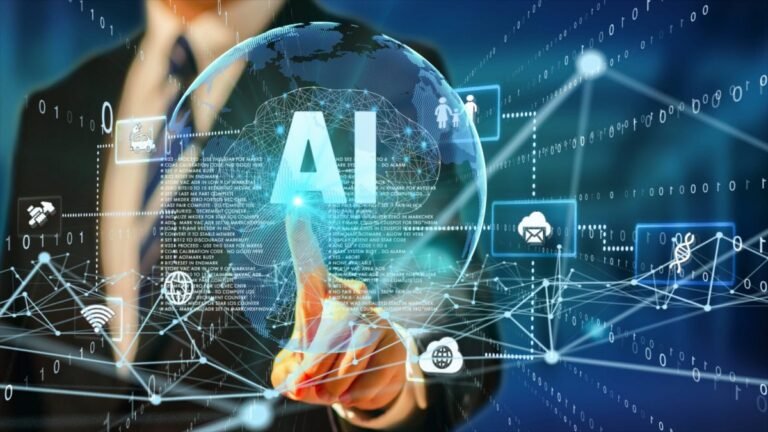As the demand for cleaner and safer environments rises, janitor AI is emerging as a game-changer in the cleaning industry. This innovative technology harnesses the power of artificial intelligence to enhance cleaning operations, making them more efficient and effective. In this article, we will explore the concept of janitor AI, its key components, advantages, practical applications, challenges, and future prospects.
What is Janitor AI?
Janitor AI represents the convergence of artificial intelligence and cleaning services. By utilizing advanced technologies such as machine learning, robotics, and sensor systems, janitor AI automates cleaning processes, delivering a level of efficiency and precision previously unattainable.
The Evolution of Cleaning Technology
Cleaning has traditionally been a labor-intensive task. With the advent of janitor AI, the industry is experiencing a transformative shift toward automation, allowing organizations to optimize their cleaning operations and allocate human resources more strategically.
Essential Technologies Behind Janitor AI
To fully grasp the impact of janitor AI, it’s important to understand the technologies that drive its capabilities:
1. Machine Learning
Machine learning forms the backbone of janitor AI. It allows systems to analyze data from cleaning tasks and continuously improve their performance based on past experiences and changing environments.
2. Sensor and Imaging Technologies
Advanced sensors and imaging technologies are integral to janitor AI. They enable systems to gather real-time data about the cleaning environment, identifying areas that require attention and adjusting cleaning efforts accordingly.
3. Robotic Cleaning Solutions
Robotic systems equipped with janitor AI can autonomously carry out various cleaning tasks. These robots navigate spaces effectively, ensuring comprehensive cleaning while minimizing the need for direct human oversight.
Benefits of Implementing Janitor AI
Integrating janitor AI into cleaning operations offers numerous advantages for businesses looking to enhance their efficiency and effectiveness:
Enhanced Efficiency
One of the primary benefits of janitor AI is its ability to significantly boost operational efficiency. Automated systems can clean larger areas in less time compared to traditional methods, allowing staff to concentrate on higher-level tasks.
Consistent Quality
Janitor AI ensures a consistent level of cleanliness. Automated processes follow set protocols, delivering reliable results across different cleaning sessions and environments.
Cost Reductions
Although the initial investment in janitor AI technology can be considerable, the potential for long-term cost savings is significant. By lowering labor costs and increasing efficiency, organizations can achieve better financial performance.
Data-Driven Insights
With janitor AI, organizations can collect valuable data on their cleaning practices. This data can drive strategic decision-making, improve resource allocation, and enhance overall cleaning strategies.
Improved Health Standards
In a world increasingly focused on health and safety, janitor AI plays a crucial role in maintaining hygiene. Regular and thorough cleaning supported by AI helps reduce the spread of germs and illnesses in various environments.
Practical Applications of Janitor AI
The flexibility of janitor AI allows it to be utilized across diverse sectors. Here are some notable applications:
Office Environments
In corporate settings, janitor AI automates routine cleaning tasks. Robotic vacuums and floor cleaners can operate autonomously, maintaining cleanliness without interrupting employees.
Healthcare Facilities
In hospitals and clinics, cleanliness is critical for patient safety. Janitor AI can manage the cleaning of patient rooms, surgical areas, and communal spaces, ensuring adherence to stringent health regulations.
Educational Institutions
Schools and universities benefit from janitor AI by ensuring clean and safe learning environments. Automated systems can clean during off-hours, preparing facilities for daily use.
Retail and Hospitality
In retail stores and hotels, janitor AI enhances the customer experience by maintaining cleanliness. Automated solutions can operate in busy settings, ensuring that public areas remain inviting.
Challenges of Janitor AI Implementation
Despite its many benefits, the adoption of janitor AI presents several challenges that organizations must navigate:
Initial Costs
The upfront investment for janitor AI technology can be high. Organizations must carefully assess whether the long-term benefits justify the initial expenditure.
Integration with Existing Systems
Successfully implementing janitor AI requires integrating new technologies with existing cleaning protocols. Organizations need to ensure they have the necessary infrastructure for a seamless transition.
Workforce Considerations
The rise of janitor AI raises questions about its impact on the janitorial workforce. While automation can enhance efficiency, it’s important to find a balance that preserves jobs for human workers in more specialized roles.
Flexibility for Diverse Needs
Cleaning requirements vary significantly across different environments. Janitor AI systems must be adaptable enough to address the unique challenges posed by various sectors.
The Future Outlook for Janitor AI
Looking ahead, the future of janitor AI is filled with opportunities, driven by several key trends:
Advanced AI Capabilities
As AI technology continues to evolve, janitor AI systems will likely become more sophisticated, incorporating advanced predictive analytics to optimize cleaning schedules based on real-time data.
Integration with Smart Technologies
With the rise of smart buildings and IoT devices, janitor AI is poised to integrate seamlessly with other smart technologies, enhancing overall operational efficiency.
Commitment to Sustainability
As environmental concerns become increasingly important, janitor AI is expected to adopt greener cleaning practices, reducing waste and improving resource efficiency.
Personalized Cleaning Solutions
As demand for customized services grows, future janitor AI solutions may offer enhanced personalization, allowing organizations to tailor cleaning protocols to their specific needs.
Conclusion
In summary, janitor AI is set to revolutionize the cleaning industry by providing significant improvements in efficiency, quality, and hygiene. As technological advancements continue to shape this field, janitor AI will play a critical role in modern cleaning practices. By embracing this innovative approach, organizations can enhance their operations and create cleaner, healthier environments for all. The emergence of janitor AI signifies a commitment to excellence and operational efficiency, marking a new chapter in the future of cleaning services.


